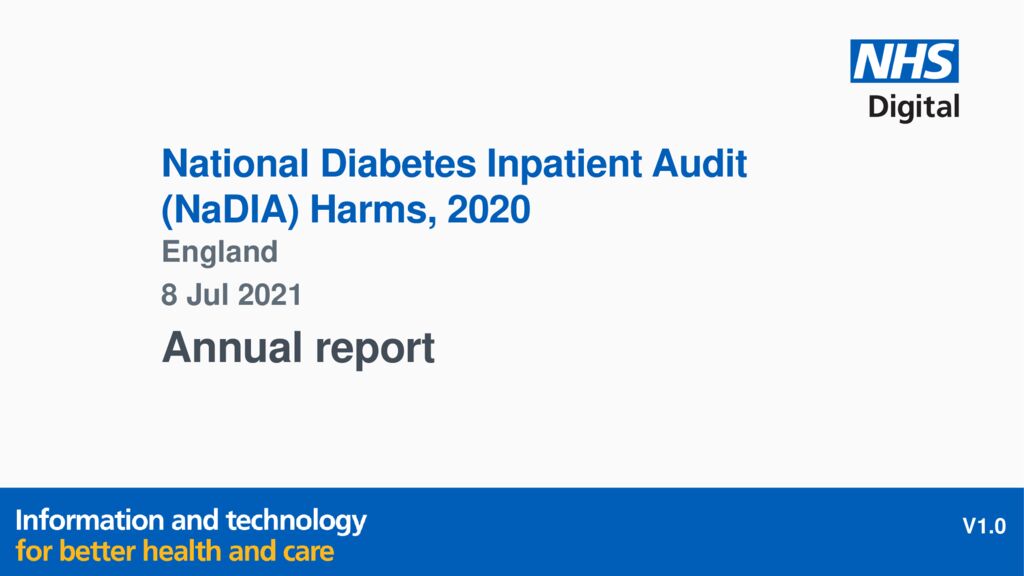National Diabetes Inpatient Audit (NaDIA) Harms 2020
The National Diabetes Inpatient Audit–Harms (NaDIA-Harms) programme, which aims to monitor and reduce instances of key life-threatening diabetes specific inpatient events (harms), has published their latest annual report.
Based on data collected in English hospitals between May 2018 and October 2020, this report is designed to support local quality improvement work, contributing to a reduction in rates of serious and avoidable inpatient harms relating to diabetes. More specifically, it can support the development of risk-adjusted outcomes and the identification of patients at risk.
Overall 4,605 inpatient harms were submitted to the NaDIA-Harms audit between May 2018 and October 2020; the majority of which related to hypoglycaemic rescue (69%). This report also covers:
- the number of submissions of each inpatient harm
- the impact of the Covid-19 pandemic on inpatient harms, and
- patient profiles of people that experience each inpatient harm. These include demographics, diabetes characteristics, treatment targets, care processes, admission characteristics and comorbidities.
NaDIA-Harms is part of the National Diabetes Audit (NDA) which is a programme of continuous data collection of serious inpatient events (referred to as ‘harms’) that occur due to errors of inpatient diabetes management. The programme covers hypoglycaemic rescue, diabetic ketoacidosis (DKA), hyperosmolar hyperglycaemic state (HHS) and diabetic foot ulcer. The overall objective of NaDIA-Harms is to help reduce the rates of these serious inpatient harms by providing hospitals with a system of case-mix adjusted benchmarked measurements.
Read the report in full: You can read the report by clicking on the link below.
Stay-up-to-date: For notifications of future reports from HQIP, sign up to our mailing list.


